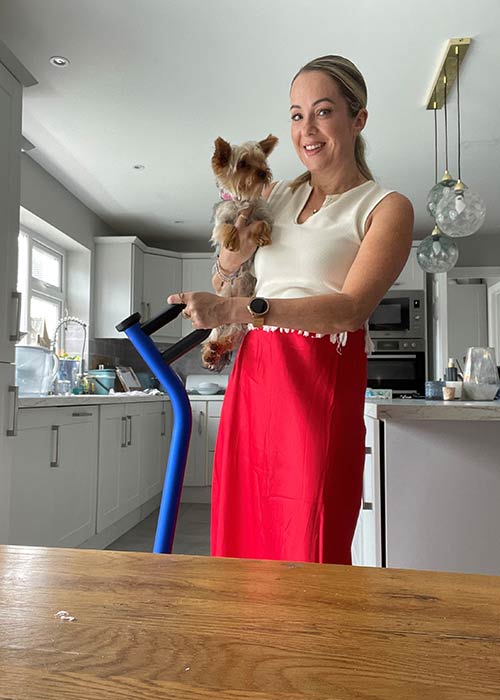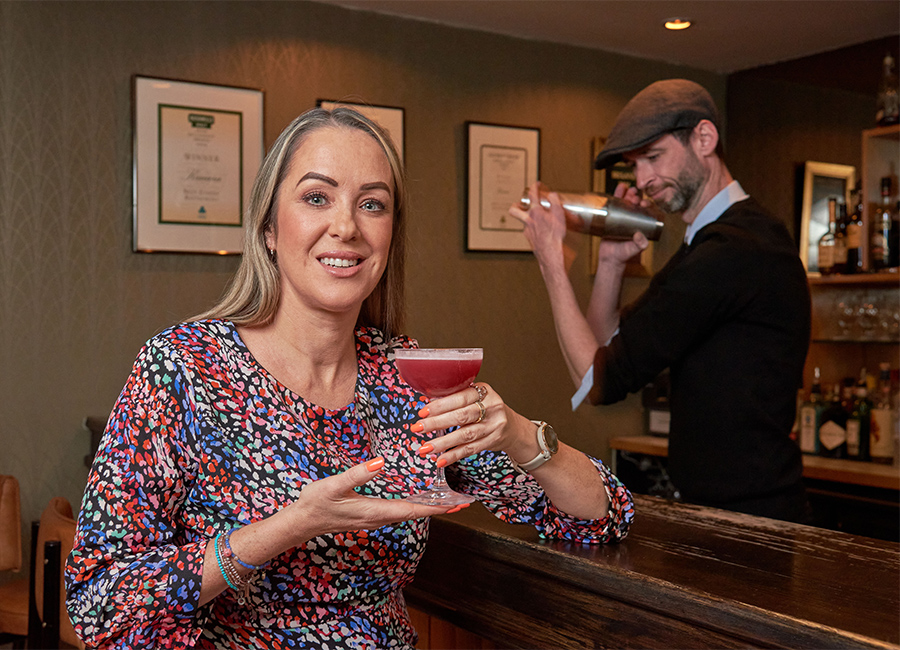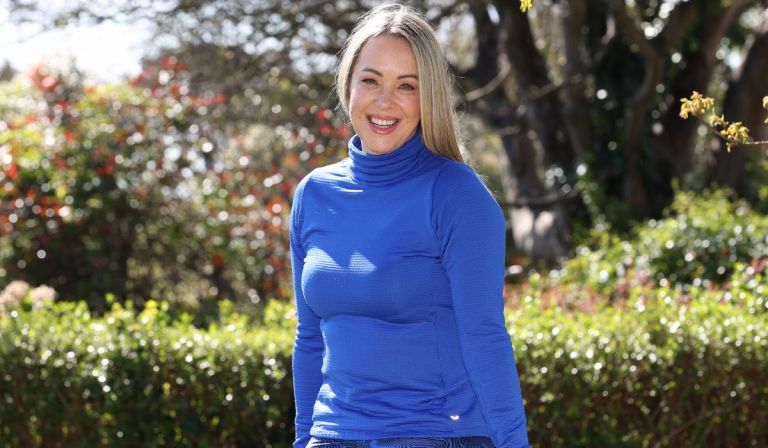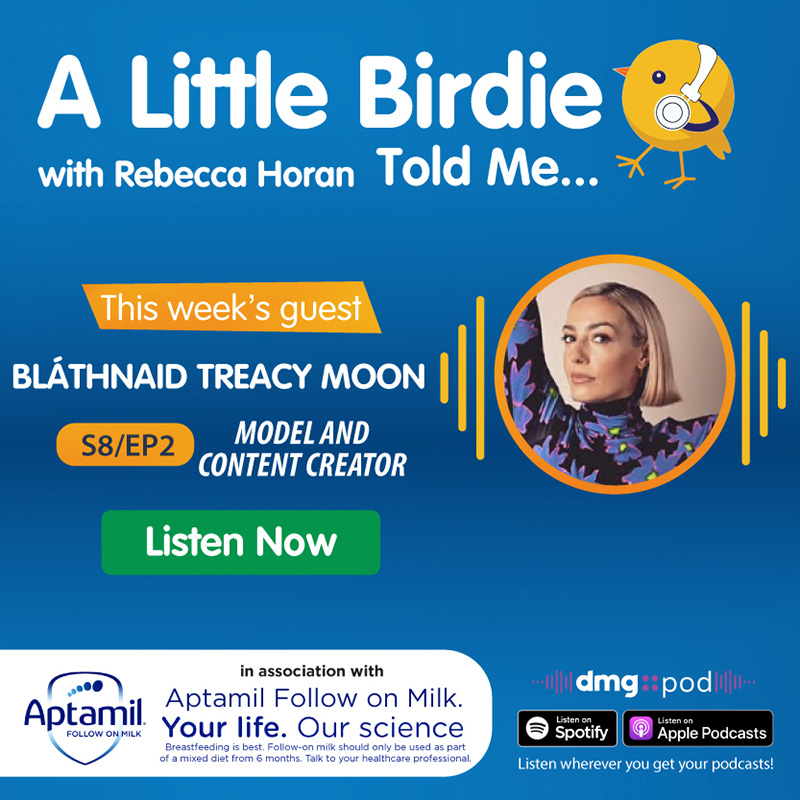So, at the ripe old age of 46, I recently received a diagnosis of ADHD. I can almost see some of you narrow your eyes in scepticism, and believe me, until this year, I'd have maybe done the same.
Over the past few years, it has seemed this neurodivergence is everywhere - the term bandied about as a wry observation for misplacing keys yet again, or forgetting your neighbour's name, or not making your children's dental appointment.
Yes, I know what you're going to say: mid-40s, hormonal storm - it sounds like what every other woman my age is going through. And I would mostly agree.

The onset of perimenopause has made me feel like my brain is wired differently, in a way that's not conducive to normal, everyday functioning. Or - as I'm discovering - perhaps this hormonal hell has simply highlighted a dysfunction that was there all along.
Let me go back to the start of the year. I was busy - so busy. One day I found myself, both literally and figuratively, on the floor - all the spinning plates smashed around me.
The noise in my mind, which has always raced, had become unmanageable. I couldn't sleep. I wanted to run away. I was quite simply exhausted with life.
I ended up sobbing in my GP's office - a wonderfully astute doctor I trust wholeheartedly, who has genuinely saved me before, both physically and mentally, by identifying both severe postpartum mental distress and a cardiac condition after my daughters were born. She looked at me gently and asked a question that only recently has started to make sense: 'Have you ever considered you might be neurodivergent?

Even in my highly distressed state, I remember thinking, what on earth was she talking about? Surely this was just my age, my hormones, my stage of life?
Well, yes and no, she explained. Fluctuating hormones do play a part - as declining oestrogen can exacerbate pre-existing ADHD symptoms, particularly inattentiveness and emotional disregulation.
Exploring an assessment in the future could be helpful, she said, as women often become adept at masking those symptoms for decades - until a time such as perimenopause, when it simply becomes too difficult.
While they can be high functioning and indeed successful, the internal toil comes at a severe cost to their mental health. With antidepressant medication and therapy, things stabilised to the point where I could sleep again, stop crying, stop fantasising about swerving my car into an oncoming truck (it went that dark).

But months passed, and I still felt like my mind was laden down with weight; a thick fog combined with continual chattering of daily to-do lists that I'd start and struggle to finish - a familiar pattern in my life.
So, I started reading. On the ADHD Ireland website, I came across a lengthy checklist of possible traits. My response was an unequivocal yes to nearly every single one. Do you often lose or forget things? Tick. Are you easily distracted by sights, sounds, smells, emotions or random thoughts? Big tick. Do you struggle to switch off your brain at night and go to sleep? Triple tick.
Fidgeting, lack of focus, zoning out while people are speaking (not ideal as a journalist), time blindness, procrastination, struggles with sequential tasks, chaotic finances, dopamine-seeking behaviour - it was all there. And crucially, it wasn't just menopause. This sounded very much like my whole life.

Sitting through lessons at school felt so tedious it was almost physically painful. By third year, I realised I could get away with bunking off - sorry parents! - so I started to avoid it as much as possible.
I had panic attacks every Sunday night at the thought of Monday mornings. Now, I might know why. As an adult, I brimmed with ideas - novels, screenplays, businesses.
But I lost interest as quickly as I thought of them, hopping from one project to the unfinished next, one degree to another, procrastinating so hard over dissertations that they gave me breakdowns.

Now, Ireland isn't exactly at the forefront when it comes to timely access to diagnoses and services in ADHD. Yes, there is a national clinical programme, but accessing assessment and treatment is like finding hen's teeth. In South Dublin alone, the waiting list is nearly four years.
So I turned to an online mental health service accredited by the Psychological Society of Ireland and the UK Adult ADHD Network for a comprehensive assessment. When the results came back, I was stunned - even though I had more than an inkling.
According to these results I have the most common form of ADHD: a combined presentation of inattentive and hyperactive-impulsive symptoms. I'm in good company, with Michael Phelps, Emma Watson and Ryan Gosling sharing the same diagnosis. Still, it felt surreal and strangely emotional.
I'm bringing the report to my GP next week to consider next steps but I'm beginning to feel more self compassion, for the child I was and the woman I am. Whether this new information will alter my life radically remains to be seen - but already, there's been growth.









